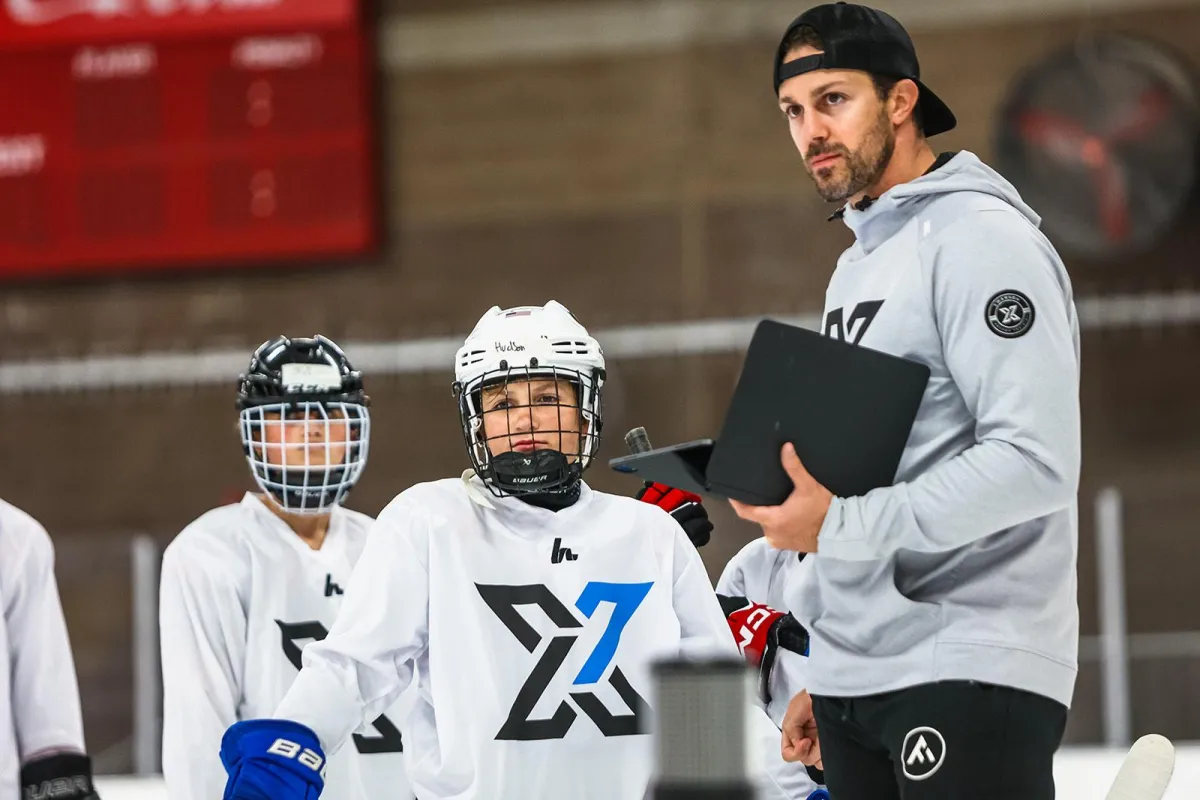Behind X7 Hockey
About Us
Founded by former NHL player Coach John Swanson, X7 Hockey is dedicated to helping young athletes achieve their dreams through expert training, personalized coaching, and a commitment to excellence on and off the ice.
You'll See Our Players & Alumni In...






MEET
John Swanson.

2001: Grew up in a split household in St. Cloud, Minnesota. Moved out at age 15 to live with my aunt.
2002: Played my first High School Varsity hockey game as a sophomore for St. Cloud Tech, weighing only 100 lbs.
2004: Senior year, I led the Elite League in scoring before heading to the USHL to play for Lincoln.
Earned a full scholarship to play NCAA D1 hockey for St. Cloud State University. During this time, I developed a deep interest in understanding what elite athletes do to gain the edge beyond traditional methods.
2005: Began working with youth and high school athletes to help them prepare for their seasons by enhancing their training off the ice.
2009: Played in the AHL for the Tampa Bay Lightning, scoring 2 goals and 2 assists in 7 games. I was set for a two-way contract, but after a management change, the opportunity was lost.
2010: Signed a PTO with Vancouver’s AHL team, made the roster, but was released when an extra player was sent down. Being the only player not on contract, I was let go. After what happened between this and Tampa, I was ready to quit. I had my first real taste that it was a business and it isn't always fair.
I received a call from my previous captain at SCSU encouraging me to go play for in the ECHL for Dallas Stars’ farm team the Steelheads. That year I would play for Derek Laxdal and he would help me find the love for the game again. Many of my closest friendship would be made this year.
Was named an All-Star in my rookie year for the Steelheads.
2011: After not getting a call up my entire 2010 season, I decided I wanted to see what Europe had to offer. I signed with Lillehammer Ice Hockey Club in Norway, but tore my ACL during the playoffs when a player feel on my knee, sidelining me for a year.
While recovering from my injury, I began training small groups of Junior A, NCAA, and NHL players off-ice to help them optimize their performance.
2014-2015: Welcomed my children, Sloane and Eddie, into the world, which deepened my commitment to creating a balance between work, family, and my passion for hockey.
2019: Grew my coaching program to include 300 athletes across North America. It wasn't until later I realized this approach followed was what I now call the Kitchen Sink Model.
* the same model most athletes and coaches rely on, which focuses on throwing everything at a athlete with no real rhyme or reason while missing out on long-term performance gains.
2020: As my children’s interest in hockey grew, I decided to sell my training facility to spend more time with my family and prioritize being present, instead of being tied to late hours in the gym.
2021: I took on a role with St. Cloud State University’s Strength & Conditioning department. Revamped their hockey performance program with a small team. The men’s team became NCAA Tournament Runner-Ups that year for the first time in school history. This new approach emphasized identifying performance constraints and crafting individualized strategies for long-term success.
* this is where I discovered The Long-Term Performance Model
2022: I began advising athletes and families on performance strategies, guiding them on selecting the right leagues, teams, and opportunities to optimize their hockey journey.
2023: Introduced the LTP Model to a group of youth athletes, who went undefeated across North America, outscoring their opponents 168-18. We arranged for them to play teams 2-3 years older at the end of year just to create competitive games. Many of these young athletes showed performance metrics that mirrored those of NCAA players, despite being 10 years younger.
2024+: After 20 years of development, the LTP Model was officially launched. It focuses on identifying each athlete’s unique performance constraints and designing tailored, streamlined strategies that help them reach peak performance today while building a sustainable foundation for their future success, without sacrificing long-term development.

Copyright - John Swanson LLC - All Rights Reserved
Instagram
TikTok
Youtube